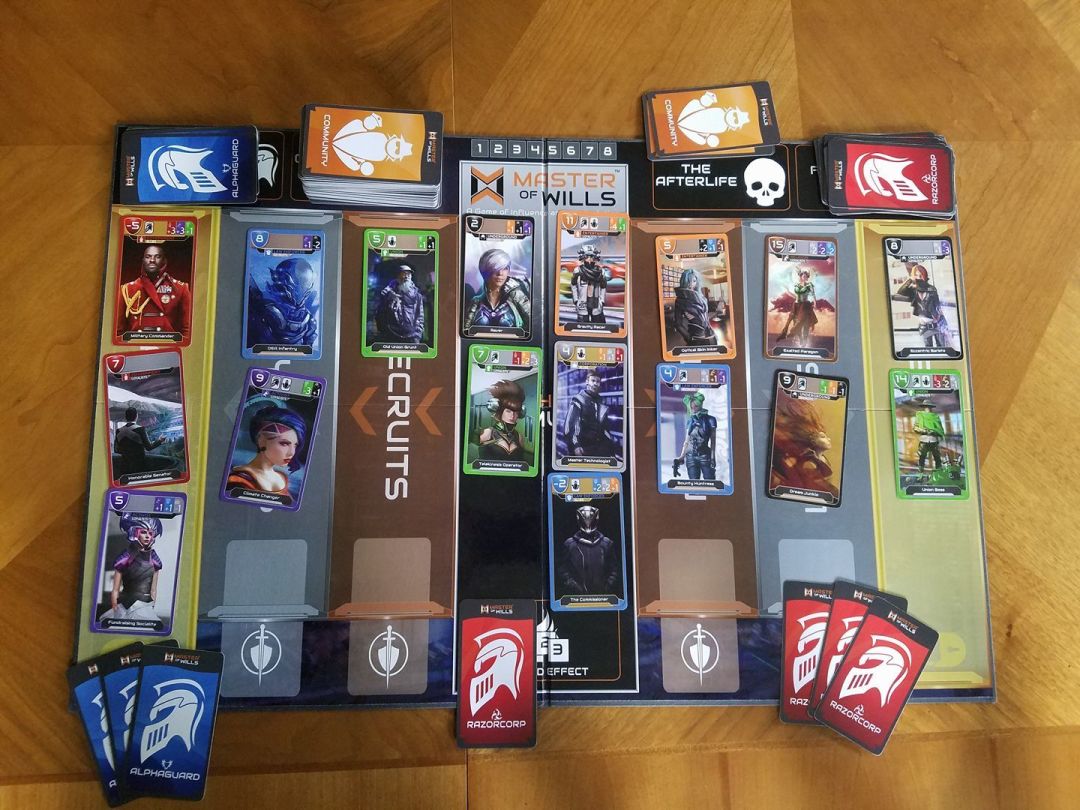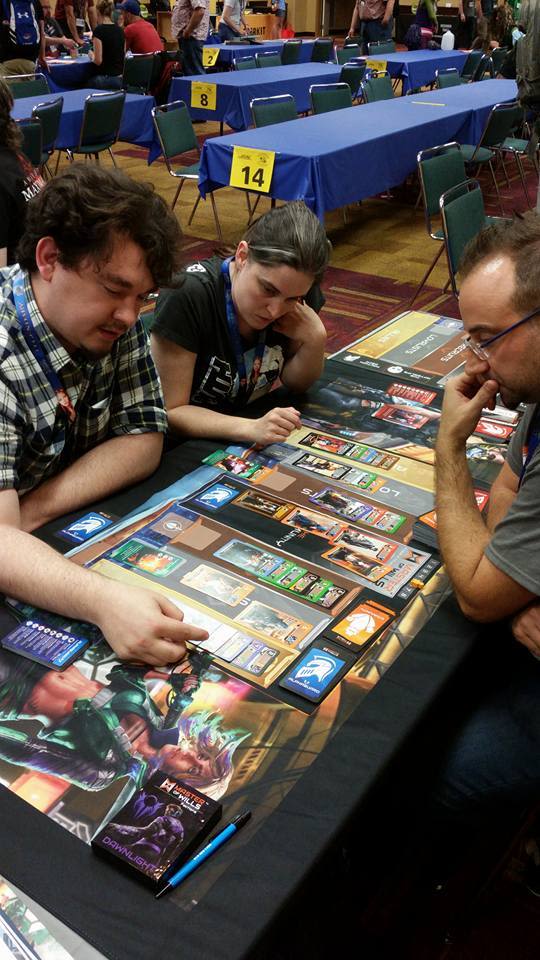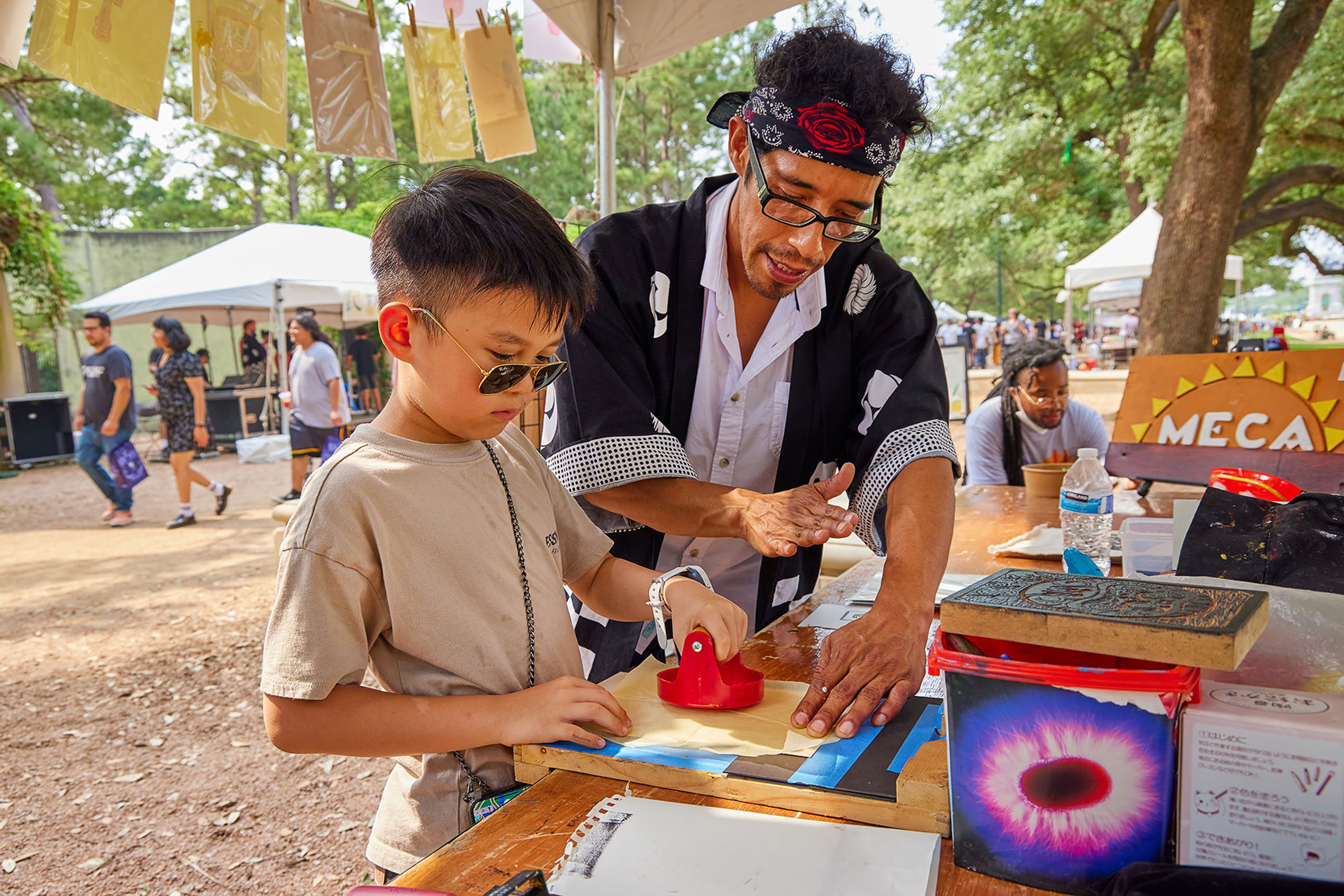There's a Houston-Made Board Game You Need to Play

Image: Courtesy Master of Wills
As with most games, the easiest way to learn new indie board game Master of Wills is by playing it. There are several moving parts that work together strategically, much like chess, but with point values more like dominos. Apply those concepts to cards, a board, and stunning futuristic art, and you have Master of Wills.
Randy Van Gelder, the game’s creator, says it’s a dream come true, which isn’t an exaggeration considering the idea literally came to him in a dream in early December last year. “I woke up at around 4 a.m. and had to get up to draw out the idea of the game that had just come to me,” he says. “I still have sketches of the game board and the original community concepts from that early morning,”
Van Gelder was born and raised in Houston, attended UH and currently runs this young business out of the Sugar Land area, so it’s no surprise that Houston has had an influential effect on MOW. “The diversity in Houston is one of the major inspirations,” he says. “I strongly believe that living in a diverse world makes us all stronger. Among the characters in the game, men and women are equally represented. We specifically included all races and show a variety of futuristic religions inspired by the diversity that we have in the world today.”
Here’s a quick rundown: Master of Wills can be played one-versus-one or two-versus-two. It’s all about moving cards—you want to move as many points to your side of the board as possible while your opponent is trying to do the same for their side. “Community Cards” are each assigned a number value, and each card represents a character from one of the eight sectors of the community. Moving those cards can trigger the basic movement of other cards on the board.
Each player also picks a team, called a “Faction,” and strategically utilizing cards from the faction deck allows for even more powerful card movement. For instance, let's say you choose a faction card that says, “Choose any card from your opponent’s Recruits or Loyalists and move to your Allies.” Then imagine your opponent has a card with a 15-point value in their loyalists column. You can snatch up that valuable card and lock it into the allies column on your side of the board, giving you a large number of points and taking those same points away from the opponent. A single, well-timed Faction Card can be a complete game changer; if none of that makes sense, trust me—just play and you'll catch on.

Image: Courtesy Master of Wills
Last month, Van Gelder and his small team headed to Indianapolis for the 50th annual Gen Con, the longest-running gaming convention in the world. Through their interactions with Gen Con attendees and play testers, they received overwhelmingly positive responses.
I would probably fall under the “casual player” category. I’ve always enjoyed board and card games, but I don’t play them often and I don’t consider myself a gamer. Regardless, I’ve enjoyed the game and I think true gamers would love it too. I would also agree that it is relatively easy to learn, and everything starts to click about halfway through the first game. For those who might be visual learners, MOW has video instructions on their YouTube channel. Once you get the hang of it, the game moves at a nice pace—fast enough to hold my attention, but slow enough to strategize.
Luckily, despite Hurricane Harvey, the MOW team is still on track to officially launch this month, and they will begin shipping their first orders in mid September.




